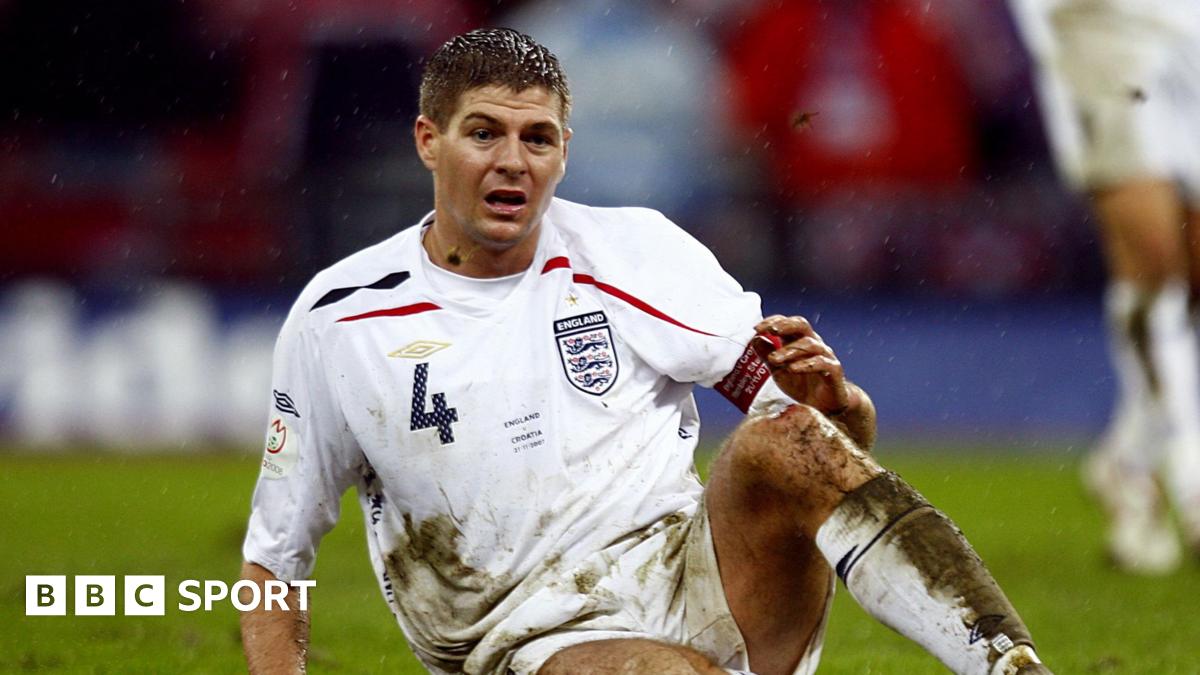England's Golden Generation were 'egotistical losers' - Gerrard

Gerrard: England's 'Golden Generation' Were 'Egotistical Losers'
Former England captain Steven Gerrard has delivered a damning assessment of the nation's so-called 'Golden Generation,' labelling them "egotistical losers" and admitting he sometimes "hated" being on international duty. The Liverpool legend, who amassed 114 caps and represented England at six major tournaments without reaching a semi-final, believes a fractured team culture and individual egos prevented the squad from fulfilling its potential.
Lack of Unity Cost England Dearly
Speaking on the Rio Ferdinand Presents podcast, Gerrard lamented the lack of camaraderie within the squad, suggesting players were too entrenched in club rivalries to form a cohesive unit. He pointed to the present-day relationships between former rivals like Jamie Carragher and Gary Neville as evidence of a missed opportunity. "We weren't friendly or connected. We weren't a team. We never at any stage became a real good, strong team," Gerrard stated.
Gerrard’s comments highlight a long-standing debate within English football: whether individual talent alone is sufficient for international success, or if a strong team ethic is paramount. His perspective offers a stark contrast to the narrative often pushed during that era, which focused heavily on the star power of players like Gerrard himself, Frank Lampard, and Paul Scholes.
Expert Analysis: The Impact of Club Rivalries
Football psychologist Dr. Sarah Lyons, speaking to BBC Sport, suggested that strong club identities can indeed hinder international team cohesion. "Players often develop deep-rooted loyalties and rivalries at their clubs," she explained. "While healthy competition can be beneficial, excessive animosity can create divisions within a national team, especially when those rivalries are consistently reinforced throughout the season." Dr. Lyons added that effective leadership and management are crucial in bridging these divides and fostering a unified sense of purpose.
'I Hated It': Gerrard's International Experience
Gerrard didn't shy away from expressing his negative experiences on international duty. "I hated it. I didn't enjoy it. Hated the [hotel] rooms," he confessed, describing feelings of isolation and disconnect from his teammates. He contrasted this with his positive experiences at Liverpool, where he felt valued and supported. "With England, I just wanted the games and the training sessions and then to be away," he said.
His comments shed light on the often-unseen mental challenges faced by international players, who are thrust together for intense periods under immense pressure. The demands of representing one's country can be particularly taxing when coupled with a sense of isolation and a lack of genuine connection with teammates.
Southgate's Success: A Cultural Shift
Gerrard praised Gareth Southgate for fostering a more positive and unified environment within the current England squad. Southgate's leadership has been credited with transforming the team's culture, leading to a World Cup semi-final appearance in 2018 and a European Championship final in 2021. "Gareth Southgate is underrated for how he connected with the England team," Gerrard acknowledged.
The contrast between Gerrard's experiences and the current atmosphere within the England camp underscores the importance of team culture in achieving international success. Southgate's emphasis on unity, humility, and a shared sense of purpose appears to have unlocked the potential that eluded previous generations.
Historical Context: England's Unfulfilled Potential
England's 'Golden Generation,' boasting world-class talents across the pitch, consistently underperformed in major tournaments. Despite high expectations, the team failed to progress beyond the quarter-finals in any World Cup or European Championship between 2002 and 2012. This period is often viewed as a missed opportunity for English football, fueling debates about the factors that contributed to the team's shortcomings.
Football historian, Dr. Johnathan Wilson, commented, “The ‘Golden Generation’ label itself became a burden. The constant pressure and expectation, coupled with the internal issues Gerrard describes, created a toxic environment. Southgate’s achievement has been to dismantle that pressure and create a team that plays with freedom and unity.”
Gerrard's candid reflections offer a valuable insight into the challenges faced by England's 'Golden Generation' and highlight the transformative impact of a positive team culture in achieving international success. His words serve as a cautionary tale for future generations, emphasizing the importance of unity, humility, and a shared sense of purpose in the pursuit of glory.
Originally sourced from: BBC Sport Football
